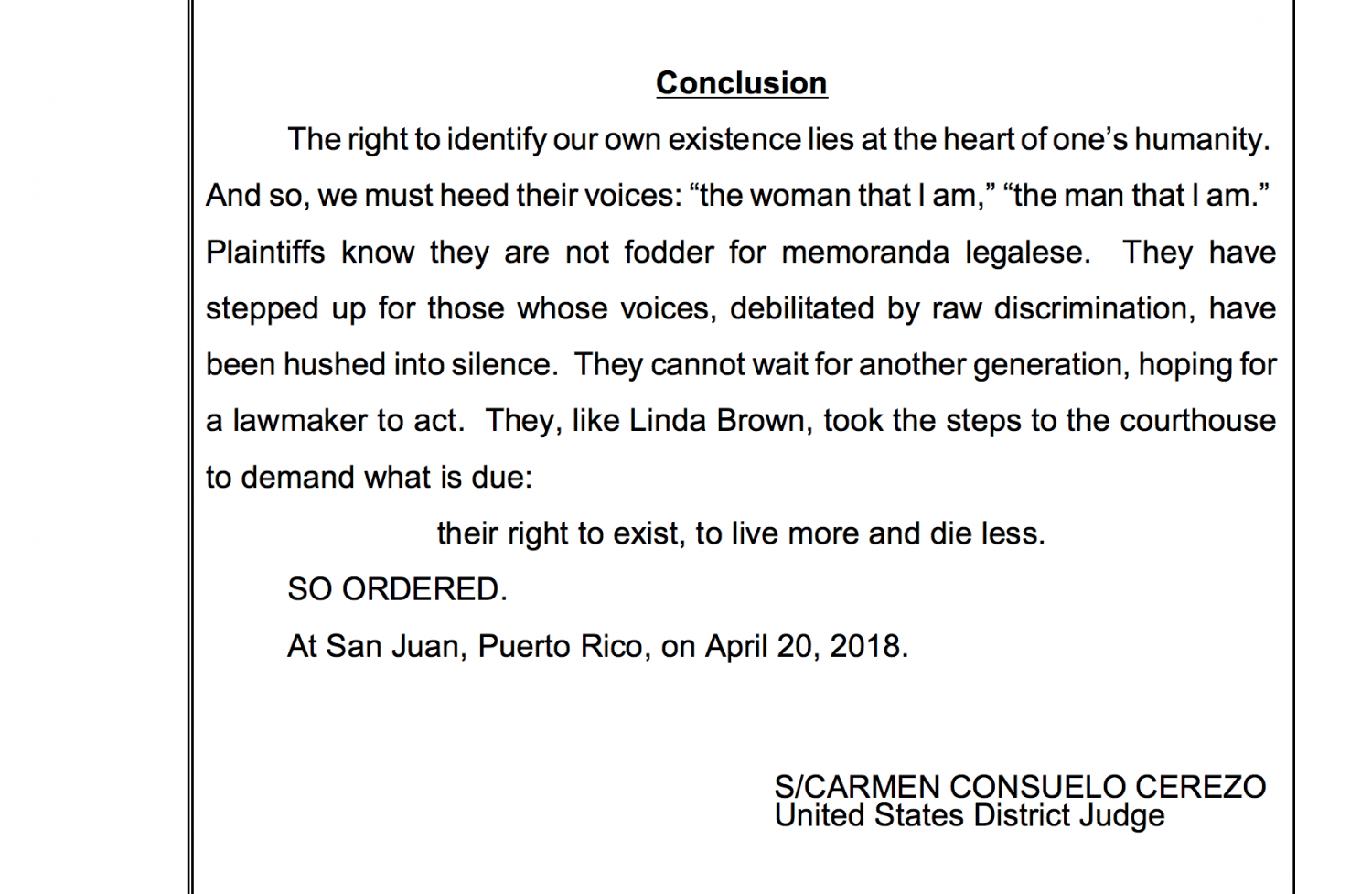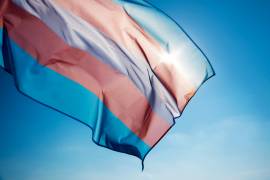Today, the U.S. District Court for the District of Puerto Rico issued its opinion, as promised in the order earlier this month, that denying accurate birth certificates to transgender people is a violation of their privacy.
The order bans discrimination by Commonwealth public agencies and establishes an application process for transgender people born in Puerto Rico to correct their birth certificates. Lambda Legal, joined by pro bono co-counsel from Ropes & Gray, challenged Puerto Rico’s categorical ban on corrections to the gender marker in birth certificates last April in a first-of-its-kind federal lawsuit.
From the moving opinion of U.S. District Judge Carmen Consuelo Cerezo:
The right to identify our own existence lies at the heart of one’s humanity. And so, we must heed their voices: ‘the woman that I am,’ ‘the man that I am.’ Plaintiffs know they are not fodder for memoranda legalese. They have stepped up for those whose voices, debilitated by raw discrimination, have been hushed into silence. They cannot wait for another generation, hoping for a lawmaker to act. They, like Linda Brown, took the steps to the courthouse to demand what is due: their right to exist, to live more and die less.
“This is a groundbreaking opinion that recognizes transgender people’s right to define their own identities. The government can no longer refuse to recognize transgender people’s identities. To do so violates transgender people’s constitutional rights, including their rights to liberty, privacy, and autonomy,” said Omar Gonzalez-Pagan, Staff Attorney for Lambda Legal. “We are pleased that the court recognized that the government cannot interfere with transgender people’s ability to live as their authentic selves and that attempts to do so are unconstitutional. As the Court concluded, we must heed transgender people’s voices.”
“The opinion released today upholds the constitutional and fundamental rights of transgender individuals in the Commonwealth of Puerto Rico to self-identify. In particular, we are pleased with the court’s distinction that the Commonwealth’s ban on changing the gender marker in plaintiffs’ birth certificates implicates a violation of personal and informational privacy recognized by the Fourteenth Amendment,” said Dan O’Connor, a member of the Ropes & Gray pro bono team.
In early April 2017, Lambda Legal and Ropes & Gray filed a lawsuit challenging the ban on behalf of two transgender women – Daniela Arroyo González and Victoria Rodríguez Roldán – and one transgender man, J.G., identified only by his initials, as well as Puerto Rico Para Tod@s, arguing that denying transgender Puerto Ricans the ability to obtain accurate birth certificates violates the Equal Protection and Due Process clauses of the U.S. Constitution by forcing transgender Puerto Ricans, through their birth certificates, to identify with a gender that is not who they are.
The suit also argues that the ban violates transgender Puerto Ricans’ right to free speech under the First Amendment. Since filing this case, Lambda Legal has also successfully challenged a similar categorical ban in Idaho in F.V. v. Barron and sued the State of Ohio over its ban in Ray v. Himes.
Transgender people who want to change their birth certificates should fill out a Request to Change Transgender Persons’ Gender Marker form, along with any the following documents: (1) a passport that reflects the person’s true gender; (2) a driver’s license that reflects the person’s true gender; or (3) a certification issued by a healthcare professional or mental health professional. For more information, go toLambda Legal’s Know Your Rights: Changing Birth Certificate Sex Designations.
"I feel relieved to have an accurate birth certificate that is a true reflection of who I am. I feel safer and I feel like my country finally sees me, respects me, and protects my identity as a woman,” said client, Daniela Arroyo-González.
According to the 2015 U.S. Transgender Survey, almost one-third of transgender individuals who showed an identity document with a name or gender marker that conflicted with their perceived gender were harassed, denied benefits or services, discriminated against, or assaulted. Transgender individuals also are disproportionately targeted for hate crimes.
Read about birth certificate policies across the United States here.






